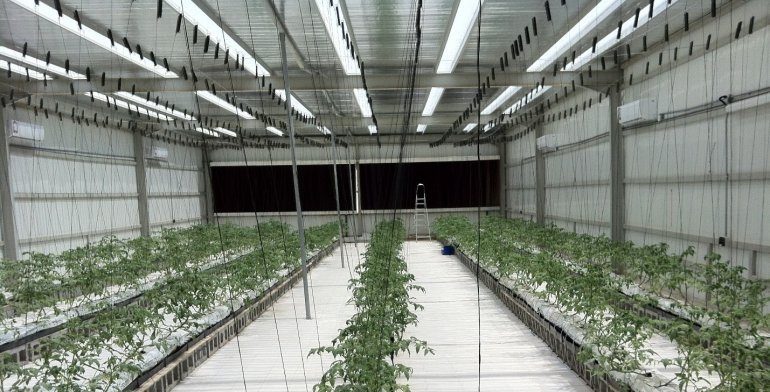Qatar University (QU) is working on developing the country’s first-ever thermal insulated greenhouses powered by solar energy. A step that will bring Qatar closer to its sustainable food security goal.
With its food security goal being achieved promptly in many areas and earlier in others, Qatar is paving the way for more economic and agricultural successes by working on its first thermal insulated greenhouse.
“Qatar has set food security as a priority for the country and set out a commitment to sustain about 70 percent self-sufficiency on greenhouse vegetables. Achieving sustainable food security was further ascertained by the ongoing geopolitical tensions and the imposed blockade on the country,” said Dr. Saud Ghani, lead researcher of Greenhouse project and Professor of Mechanical Engineering at College of Engineering.
The project, currently being developed by QU, is funded by the Qatar National Research Fund and National Priority Research Program, and is in collaboration with the Department of Agricultural Research at the Ministry of Municipality and Environment.
https://twitter.com/QatarUniversity/status/1307899751581483009
Made to ensure a controlled growth environment for the plants, greenhouses make it possible to grow certain crops all year long and maximise yield. However, providing such an environment in hot places like Qatar is energy-intensive.
“In subtropical, hot and arid regions, most of this energy is to cater for the required cooling. Sunlight is necessary for healthy plant growth. However, the sunlight utilization in the greenhouses is not optimized. The cooling demand is mainly attributed to the admittance of excess solar radiation and heat gain through the greenhouse walls,” said QU.
The proposed greenhouse aims to solve two shortcomings of the conventional greenhouse: amounts of solar radiation entering during the summer season and the amount of undesired heat. After extensive research and trials, the project used top tier technologies to develop a thermally insulated greenhouse that allows the entry of optimum solar radiation levels through lenses located in its roof.
When the light enters through the lenses, the radiation gets distributed over the plants rows, thus providing the required levels of solar radiation for optimum plant growth.
“The greenhouse prototype is currently under field tests for yield assessments at the Nabati farm in Mekanees, south of Doha. For the last two summers (2018, 2019), the field tests have proven very promising and the Ministry is looking forward to developing Qatar’s first agriculture greenhouse standards using this prototype as a blueprint,”said Dr. Ghani.
Since the blockade, Qatar’s food and manufacturing infrastructure have proven to be robust and resilient, achieving self-sufficiency in dairy and poultry production during a historic transition phase for the country. The production of local vegetables have also reached more than 28 percent of the total need of the country and it is planned to achieve self-sufficiency of up to 70 percent in vegetable production within the coming years.
Read more: The benefit of the Qatar blockade
In order to achieve this goal and enhance sustainable food security in the country, the Agricultural Research Department actively engaged with the College of Engineering at Qatar University to develop greenhouses suitable for the Qatari local weather conditions and market with the aim of transforming the country’s industry.
Follow Doha News on Twitter, Instagram, Facebook and Youtube
